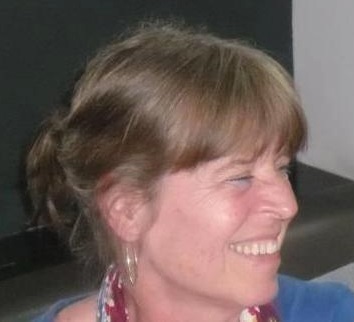Jacomine Nortier
Abstract und Informationen zur Person
Jacomine Nor tier ist außerordentliche Professorin im Bereich Soziolinguistik/Mehrsprachigkeit am Institut für Sprachwissenschaft der Universität Utrecht (Niederlande). Nach ihrem Studium der Sprachwissenschaft in Amsterdam und ihrer Promotion 1989 (Thema: Code-Switching Niederländisch/marokkanisches Arabisch, betreut von Pieter Muysken) arbeitete Nortier als PostDoc an der Universität Nijmegen. Seit 1992 ist sie an der Universität von Utrecht wissenschaftlich tätig, u.a. in unterschiedlichen Forschungsprojekten, z.B. im TCULT-Projekt (zum Zusammenspiel von Sprachen und Kulturen in multiethnischen Stadtteilen Utrechts), im LUCIDE-Projekt (zur Mehrsprachigkeit in Städten Europas), oder im YILUPS-Projekt, das den Sprachgebrauch Jugendlicher in öffentlichen Räumen Utrechts untersucht. Letzteres Projekt wurde in Kooperation mit dem Institut für Stadtgeographie in Utrecht durchgeführt. Nortier kann verschiedene Publikationen zu Fragen des Code-Switching, der Mehrsprachigkeit, des Sprachkontakts und dem Auftreten jugendspezifischer Sprechstile im urbanen Raum sowie zu (Multi-)Ethnolekten vorweisen.
tier ist außerordentliche Professorin im Bereich Soziolinguistik/Mehrsprachigkeit am Institut für Sprachwissenschaft der Universität Utrecht (Niederlande). Nach ihrem Studium der Sprachwissenschaft in Amsterdam und ihrer Promotion 1989 (Thema: Code-Switching Niederländisch/marokkanisches Arabisch, betreut von Pieter Muysken) arbeitete Nortier als PostDoc an der Universität Nijmegen. Seit 1992 ist sie an der Universität von Utrecht wissenschaftlich tätig, u.a. in unterschiedlichen Forschungsprojekten, z.B. im TCULT-Projekt (zum Zusammenspiel von Sprachen und Kulturen in multiethnischen Stadtteilen Utrechts), im LUCIDE-Projekt (zur Mehrsprachigkeit in Städten Europas), oder im YILUPS-Projekt, das den Sprachgebrauch Jugendlicher in öffentlichen Räumen Utrechts untersucht. Letzteres Projekt wurde in Kooperation mit dem Institut für Stadtgeographie in Utrecht durchgeführt. Nortier kann verschiedene Publikationen zu Fragen des Code-Switching, der Mehrsprachigkeit, des Sprachkontakts und dem Auftreten jugendspezifischer Sprechstile im urbanen Raum sowie zu (Multi-)Ethnolekten vorweisen.
Hauptforschungsbereiche:
- Soziolinguistik
- Mehrsprachigkeit
- Sprachstile Jugendlicher im urbanen Raum
Abstract zum Plenarvortrag: "Youth languages: What are we here for?"
In the conference announcement and call for papers, six questions or focus areas are formulated. These questions all relate to youth language, in one way or another. In the first part of my paper I will discuss some problems associated with the notion ‘youth languages’. Is there a common understanding of what a youth language is? Rampton (2015) proposes the term ‘contemporary urban vernaculars’ (without ‘youth’). What do the languages, varieties, styles or practices that participants at this conference are dealing with, share and where do they differ? Is it justified to use ´youth languages´as a cover term? In other words: what is it that brings us here together?
I hope to contribute to the discussion by concentrating on the relation between oral and written stylizations. In the Dutch context, elements from Moroccan languages (Arabic and Berber) are often used by Moroccan heritage speakers but also by others.
I will give illustrative examples of polylanguaging, from an ongoing small project on the role of Moroccan in virtual communicative exchanges between young people. It will be shown how elements that are originally part of Arabic or Berber are re-shaped and re-interpreted to serve identification purposes and communicative functions.
I will argue that written data are particularly well-suited for the (de-)construction of identities, or as it is called ‘Doing youth, doing peer-group’ etc.

